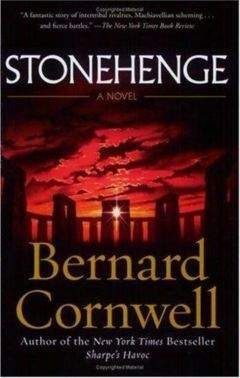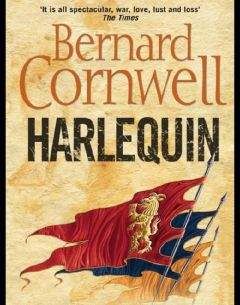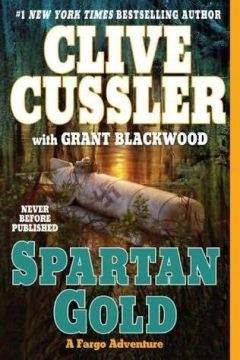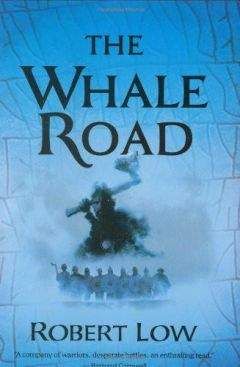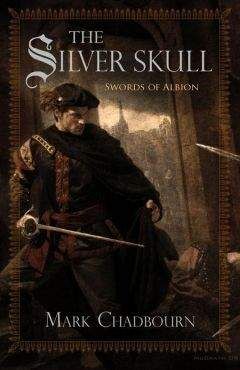Ознакомительная версия.
Her father had rejected all the suitors, even though he desperately needed wealth for he had no cattle, no sheep, no fields and no boat. He chipped stone every day. He and his wife and their children all chipped the dark, greenish stone that came from the mountains to make axe-heads, which his children polished with sand, and then a trader would come and take away the heads and leave a little food for Aurenna's family. Aurenna alone had not chipped or polished stone. Her parents would not permit it for she was beautiful and a local priest had prophesied that she would become the sun bride, and so her family had protected her until the priests came to take her away. Her father had wept and her mother had embraced her when that moment arrived. 'When you are a goddess,' her mother pleaded, 'look after us.'
Now the new sun bride came to Kereval's settlement and the waiting crowd touched their foreheads to the ground as the priests escorted her through the blossom-hung gate. Kereval lay flat just inside the settlement's gateway and did not move until Aurenna gave him permission to stand, though one of the priests had to prompt her for she still did not fully understand that she was about to become a goddess. Kereval stood and felt a great relief that Aurenna was all that she had been reported to be. Her name meant 'golden one' in the Outfolk tongue, and it was a good name for her hair shone like pale gold. She had the whitest, cleanest skin Kereval had ever seen, a long face, calm eyes and a strange air of authority. She was, indeed, beautiful — Kereval would have liked to have taken her into his own household, but that was impossible. Instead he escorted her to the hut where the priests' wives would wash her, comb her long golden hair and dress her in the white woollen robe.
'She is beautiful,' Camaban grudgingly said to Kereval.
'Very,' Kereval said, and dared to hope that the sun god would reward the tribe for giving him a bride of such ethereal beauty.
'Beautiful,' Camaban said softly, and he knew suddenly that Aurenna must be part of his great scheme. In a world where folk were bent and scarred, toothless and dirty even when they were not wall-eyed, crippled and wart-covered, Aurenna was a pale, serene and dazzling presence, and Camaban understood that her sacrifice made this year a special one for Slaol. 'But what if the god rejects her?' Camaban asked.
Kereval touched his groin in the same gesture that Camaban's people used to avert ill fortune. 'He won't,' Kereval said fiercely, but in truth he did fear just such a rejection. In the past the sun brides had gone calmly to their deaths to be snatched in a blaze of light, but since the loss of the treasures the brides had all died hard. The last one had been the worst for she had screamed like a clumsily killed pig. She had writhed and shrieked and her moans of pain were worse than the howling of the wolves or the sigh of the ever-cold sea as it sucked at the dark rocks which edged Sarmennyn's bleak land. Kereval believed that the manner of Aurenna's death would be a touchstone for his wisdom. If the god approved of the bargain with Lengar then Aurenna would die cleanly, but if he disapproved then Aurenna would die in agony and Kereval's enemies within the tribe would reject his leadership.
At the southern edge of the settlement, beside the river where a score of boats had been pulled above the high tide, there stood a circle of rough stone pillars: the temple of the sun bride. The tribe danced about the circle, singing as they waited for the bride to appear from the hut where she was being washed and dressed. Leckan, the lame sorcerer who had gone to Ratharryn when the folk of Sarmennyn had attempted to trade for the gold, and who was now the senior priest in Kereval's settlement, glanced up at the sky and saw that the clouds were thinning so that there was a chance that the sun might see the girl. That was a good omen. Then the singing and the dancing stopped as the tribe dropped to the ground.
Aurenna had appeared and, led by two priests, walked to her temple. Her hair had been combed, then gathered into a plait that was bound with a leather thong and laced with cowslips and sloe-blossom. The robe, so clean and white, hung straight from her shoulders. She would normally have been arrayed in gold, with a cascade of lozenges around her neck and the larger pieces sewn to the robe, but the gold was gone, yet even so she was dazzling. She was a tall girl, and slender, and straight-backed, so that it seemed to Camaban, who alone watched as she walked through the prostrate tribe, that she moved with an unworldly grace.
Aurenna was unsure of what she should do. She was hesitant to enter the circle until one of the priests whispered that this was the moment when she became a goddess and this was her temple and she could do as she wished, but that it was customary for the bride to go to the circle's centre and there instruct the tribe to stand and dance. Aurenna did as she was told, though there was a catch in her voice as she spoke. And just at that moment the sun broke through the clouds and the people sighed with delight for that good omen.
Kereval, the chief, carried a leather bag which he handed to Leckan, and Leckan opened it to discover new treasures inside. These were treasures that Kereval had ordered made in the land across the western sea, and they had cost him dearly in bronze and amber and jet, and though they could not replace the lost treasures, they could still do honour to Erek and his bride. The priest drew out one large golden lozenge and three chains of smaller lozenges that had been strung on strings of sinews and he hung them about Aurenna's neck. Then he produced a bronze-bladed knife that had pins of gold pierced into its wooden handle. He kept the knife himself as a symbol that the thread of Aurenna's life would be cut when her time was done.
Gifts were brought to the goddess. There were bags of grain, oysters, mussels and many dried fish. There were axe-heads and slivers of bronze, and those gifts the priests tucked away for their own use, but the food was piled before Aurenna, fetched into the temple by men who dared take a glance at the goddess before they prostrated themselves. She thanked each one with a diffidence that was alluring. She even laughed when one man brought some dried fish, all threaded by their gills onto a stick, and one fish fell off. As the man turned to retrieve it another fell from the opposite end of the stick, and as he turned to retrieve that so a third fell off. Aurenna's laughter was as bright as her betrothed who still shone down from the gap in the clouds.
'It is customary to give the food to the widows,' Leckan the priest told her in a low voice.
'The food must go to the widows,' Aurenna said in a clear voice.
Leckan gave her more instructions. She was a goddess now, so she must not be seen eating or drinking, though wherever she went in Sarmennyn a hut would be provided for her privacy. Two women would be her constant attendants and four young spearmen her guards. 'You are free to go wherever you wish, great one,' he murmured to Aurenna, 'but it is customary to travel throughout the land to bring blessings on it.'
'And…' Aurenna began a question, but the words dried in her throat. 'When…' she began again, but still could not finish.
'And, at the end,' Leckan said calmly, 'you will be here and we shall escort you to your husband. It does not hurt.' He pointed to the sun, which now blazed between the clouds. 'Your husband will not wish to wait one heartbeat longer than is necessary. There will be no pain.'
'No pain?' a voice suddenly shouted behind them. 'No pain? There must be pain! What bride does not feel pain? Pain and blood! Blood and pain!' The man who had shouted these words now came into the temple where he dropped to the ground and stretched his hands towards Aurenna's feet. 'Of course there is pain!' he shouted into the grass. 'Unimaginable pain! Your blood will boil, your bones crack and your skin shrivel. It is agony. You could never imagine such pain, not if you were to live in torment till the end of time!' He scrambled to his feet again. 'You should scream in pain,' he spat at Aurenna, 'for you are a bride!'
The man had come with a dozen followers, all naked like their leader and all priests, but only the man who shouted had come close to Aurenna. He was a tall, gaunt creature with a starved face and blazing eyes, long yellow teeth and tangled black hair and a scar-flecked skin. His voice was like a raven's jeer, his heavy bones were as knobbled as flint and his blackened fingers were hooked like claws. 'Pain is the price you pay!' he shouted at the terrified girl. He carried a heavy flint-headed spear which he flourished wildly as he capered among the stones. 'Your eyes will burst, your sinews will shrink and your screams will echo from the cliffs!' he shouted.
Camaban had watched this display and grinned at it, but Kereval had run into the temple. 'Scathel?' he shouted angrily. 'Scathel!'
Scathel was the high priest of Sarmennyn, and had been the high priest when the treasures were stolen, but he had blamed himself for the gold's loss and so he had gone away into the hills where he had howled at the rocks and scarred his body with flints. Others of the priests had followed him and, when Scathel's madness had passed, they had built themselves a new temple in the high rocks and there they had prayed, starved and abased themselves, making amends for the loss of the treasures. Many in the tribe believed that Scathel had vanished for ever, but now he had returned.
He ignored Kereval and prodded Leckan out of the way with his spear so that he could advance on the frightened Aurenna. If Scathel was impressed by her beauty he did not show it, but instead thrust his raw-skinned face at her. 'You are a goddess?' he demanded.
Aurenna could not speak, but did give one small nod in nervous acknowledgement of the question.
'Then I have a petition for you,' Scathel shouted so that every soul in the settlement could hear him. 'Our treasures must be returned! They must be returned!' His spittle flecked her face as he shouted and she stepped back to avoid it. 'I have built a temple!' Scathel bellowed over Aurenna's shoulder, addressing the whole crowd, who stared at him aghast. 'I have made a temple with my own hands and I have bled for the god, and he has spoken to me! We must fetch the treasures back!'
'The treasures will be returned,' Kereval intervened.
'You!' Scathel turned on the chief, and even levelled his spear so that a dozen warriors ran to Kereval's side. 'What have you done to retrieve the treasures?' Scathel demanded.
'We have lent men to Ratharryn,' Kereval replied courteously, 'and will send them a temple.'
'Ratharryn!' Scathel sneered. 'A small place, a miserable place, a bog of stunted people, goitred pigs and twisted serpents. You are a chief, not a trader! You do not bargain for our gold, you take it! Take our spears, take our arrows, and take back the treasures!' He stepped aside and raised his arms to attract the tribe's attention. 'We must go to war!' he shouted. 'To war!' He began to beat his spear against one of the stones. 'We must take our spears, our swords, our bows and we must kill and maim until the things at Ratharryn scream for our mercy!' The spear shaft broke and the crude stone head flew harmlessly away. 'We must burn their huts and raze their temples and slaughter their livestock and throw their infants into Erek's fires!' He turned back on Kereval and thrust out the splintered spear staff. 'Lengar has our men to fight his wars, and he has our gold, and when his wars are won he will turn on our men and kill them. You call yourself a chief? A chief would even now be leading the young men to war!'
Kereval drew his sword. It was a bronze blade, beautifully balanced, part of the tribute that each trader who came from the island across the western sea had to pay to the folk of Sarmennyn before he was allowed to carry his goods further eastwards. Kereval suddenly slashed at the spear staff and the ferocity of the attack drove Scathel backwards. 'War?' Kereval asked. 'What do you know of war, Scathel?' He slashed again, knocking the staff violently aside. 'To go to war, Scathel, I must lead my men across the black hills, then through the land of Salar's people. You would fight them?' The sword cut a third time, slicing a thick splinter from the rough ash staff. 'And when we have buried our dead, priest, and crossed the further hills, we shall come to the tribes of the great river. They have no love for us. But perhaps we can fight them too?' He slapped the staff aside again with his sword. 'And when we have fought our way across the river, and up into the farther hills, then Ratharryn's allies will wait for us with spears. With hundreds of spears!'
'Then how did Vakkal reach Ratharryn?' Scathel demanded. Vakkal was the man who had led the forces to help Lengar take the chieftainship.
'They went by hidden paths, led by your brother,' Kereval said, 'but they were only fifty men. You think I can take all our spearmen secretly? And to conquer Ratharryn, Scathel, will take all our men, and who will stay here to protect our womenfolk?'
'The god will protect them!' Scathel insisted.
Kereval slashed the sword again. This time Scathel dropped the staff and spread his hands as though inviting Kereval to drive the heavy sword into his belly, but the chief just shook his head. 'I have given my word,' Kereval said, 'and we shall give Lengar of Ratharryn time to keep his word.' He raised the sword so that its tip disappeared into the filthy tangle of Scathel's wild beard. 'Be careful of what you stir in this tribe, priest, for I still rule here.'
'And I am still high priest,' Scathel spat back.
'The treasures will be returned!' Kereval shouted. He turned to look at his tribe. 'We have chosen a bride who is more lovely than any girl we have ever sent to Erek's bed,' Kereval announced. 'She will carry our prayers.'
'And what will you do' — Scathel repeated Camaban's grim question — 'if the god rejects his bride?' He suddenly turned and snatched the bronze knife from Leckan's hand. For a heartbeat men thought he was about to attack Aurenna, but instead he held his own beard with his left hand and slashed at it with the knife, slicing off great tangled hanks of matted hair. Then he threw the hair into the temple's centre. 'With my beard I put a curse on Kereval if the god refuses this bride! And if he does, then it will be war, nothing but war! War and death and blood and slaughter until the treasures are back!' He stalked towards his old hut and the tribe parted, letting him through, while behind him, at her temple, Aurenna shuddered in horror.
Camaban watched, and afterwards, when no one watched him, he retrieved the hanks of Scathel's hair and wove them into a ring through which he stared at a cloud-shrouded Slaol. 'He will fight me,' he told the god, 'even though he loves you as I do. So you must turn his thoughts as I have turned his hair,' and with that he cast the circlet of hair into the river that flowed past Kereval's settlement. He doubted the small charm would effect the change by itself, but it might help, and Camaban knew he needed help for the god had given him a gigantic task. That was why he had returned to Sarmennyn in the time of their sun bride's rule for it was then that the Outfolk tribe was most vulnerable to suggestion, to magic and to change.
And Camaban had a whole world to change.
Ознакомительная версия.
